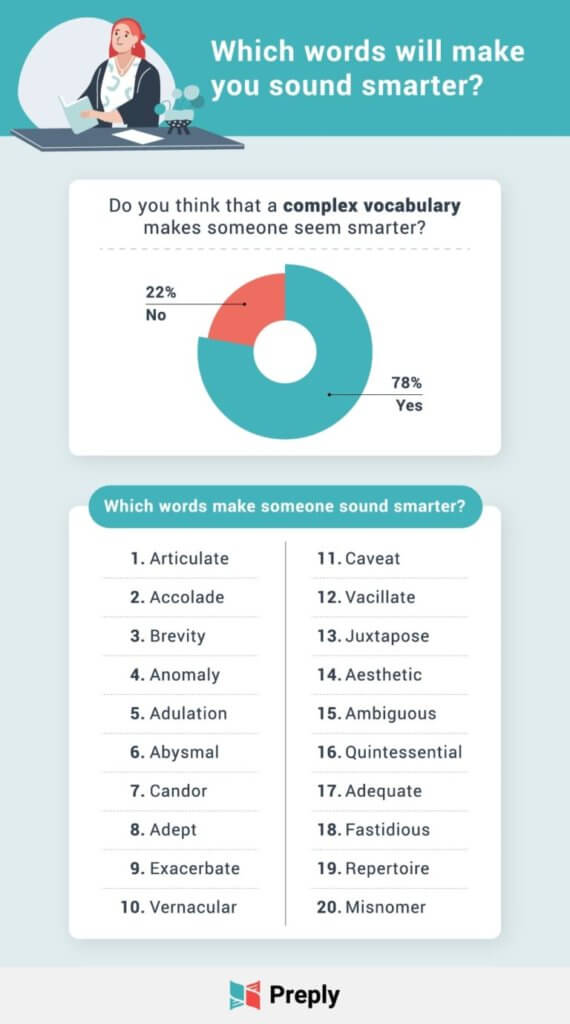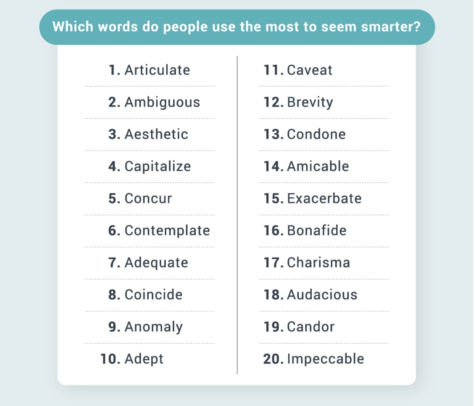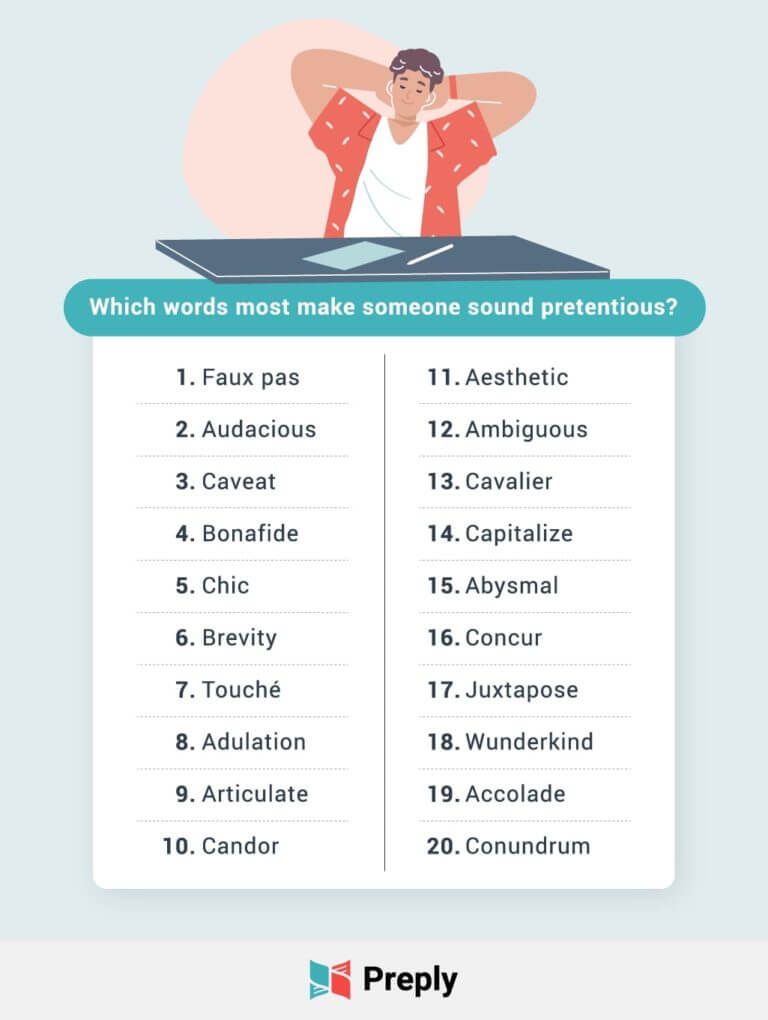
-
New survey reveals “articulate,” “accolade,” and “brevity” top list of words that make people sound smarter.
-
Conversely, “faux pas,” “audacious,” and “caveat” are words that wind up making people come off as pretentious instead.
NEW YORK — A complex vocabulary can make you seem very intelligent in the eyes of those you talk to — but a new survey finds using too many big words can also be a turn-off.
In a poll of more than 1,900 people, commissioned by Preply, 56 percent assume that someone with a complex vocabulary is very smart. Nearly four in five (78%) add that using big words makes someone seem even smarter than they might be.
“Having a large vocabulary can be important in more ways than one. For example, it can make people want to pay attention because they respect your intelligence. For another, it can allow you to reach more people. If you know terms that sports fans, police officers, and computer technicians are likely to use, you can effectively communicate with all three groups,” Preply’s Matt Zajechowski says in a statement.
So, which words can propel you from being an “average Joe” to your social circle’s resident genius? The survey finds words such as “articulate,” “accolade,” “brevity,” “anomaly,” and “adulation” top the list of terms which make a speaker sound smart.
There’s one big caveat in using these big and complex words — you might want to actually look up what your word of choice means! The survey found that 58 percent of adults use words they don’t know the meaning of just to appear smarter. By the way, caveat finished 11th on the list of complex words that make you sound smart. Impressed?

Interestingly, the survey also reveals words that people use themselves to seem smarter to others — as opposed to words they hear others use that sound smart. Topping that list, once again was “articulate,” followed by “ambiguous” and “aesthetic.”
Of course, StudyFinds doesn’t necessarily “condone” using these words when attempting to seem smarter to others, but we do “concur” that many of these are certainly “bonafide” “adequate” words that one may consider “capitalizing” on to boost their “charisma.”

Stop trying to sound so smart!
Being a clever wordsmith won’t impress everyone you run into, as 43 percent of respondents assume that people who use overly complex language are just trying to sound smarter than they really are. If you’re looking for a big word for that — it’s pretentious.
“Few people have the patience to read or listen to artificially complex language. You’ve probably come across business memos that were written in such dense language that you had no idea what they meant. That’s even if you were able to get through them,” Zajechowski adds.
The survey also finds people with a complex vocabulary might want to stick to simpler sentences when talking with a date! Although 63 percent say they’ve used complex words to impress a potential partner, 46 percent say it’s a dating dealbreaker if someone unnecessarily uses too many big words.
Talk about a romantic “faux pas” — which is also the number one word that people feel makes someone look pretentious.
Despite many people thinking a rich vocabulary makes someone appear smarter, it can also lead some to trust that wordsmith less. One in four admit they’re less likely to trust someone using big words in a conversation.

